The Mayor of Accra, Hon. Michael Kpakpo Allotey, has praised the high level of public participation recorded during the maiden National Sanitation Day cleanup exercise held across the capital.
Speaking after leading officials through various parts of Accra, including Tudu, Kantamanto, Agbogbloshie, Abbossey Okai, and the Kwame Nkrumah Circle, the Mayor expressed satisfaction at the enthusiasm displayed by residents, traders, and youth volunteers.
> “Today’s turnout shows that citizens are ready to own the sanitation agenda,” he said. “We will continue to support this effort with strict enforcement of sanitation by-laws to sustain the gains.”
Hon. Allotey reaffirmed the Accra Metropolitan Assembly’s (AMA) commitment to work closely with traditional leaders and community groups to make Accra a clean, liveable, and globally competitive city.
The Mayor further declared the entire month of October as ‘Sanitation Month’ in Accra, announcing that daily cleanup exercises will take place throughout the month to consolidate the momentum generated by the maiden National Sanitation Day.
He explained that the daily sanitation drive will target different communities each day, ensuring that by the end of October, significant progress will have been made in improving the city’s cleanliness and environmental hygiene.
Source: Darling Maame Efua Cann
MLGCRA Public Relations Unit

.jpeg)
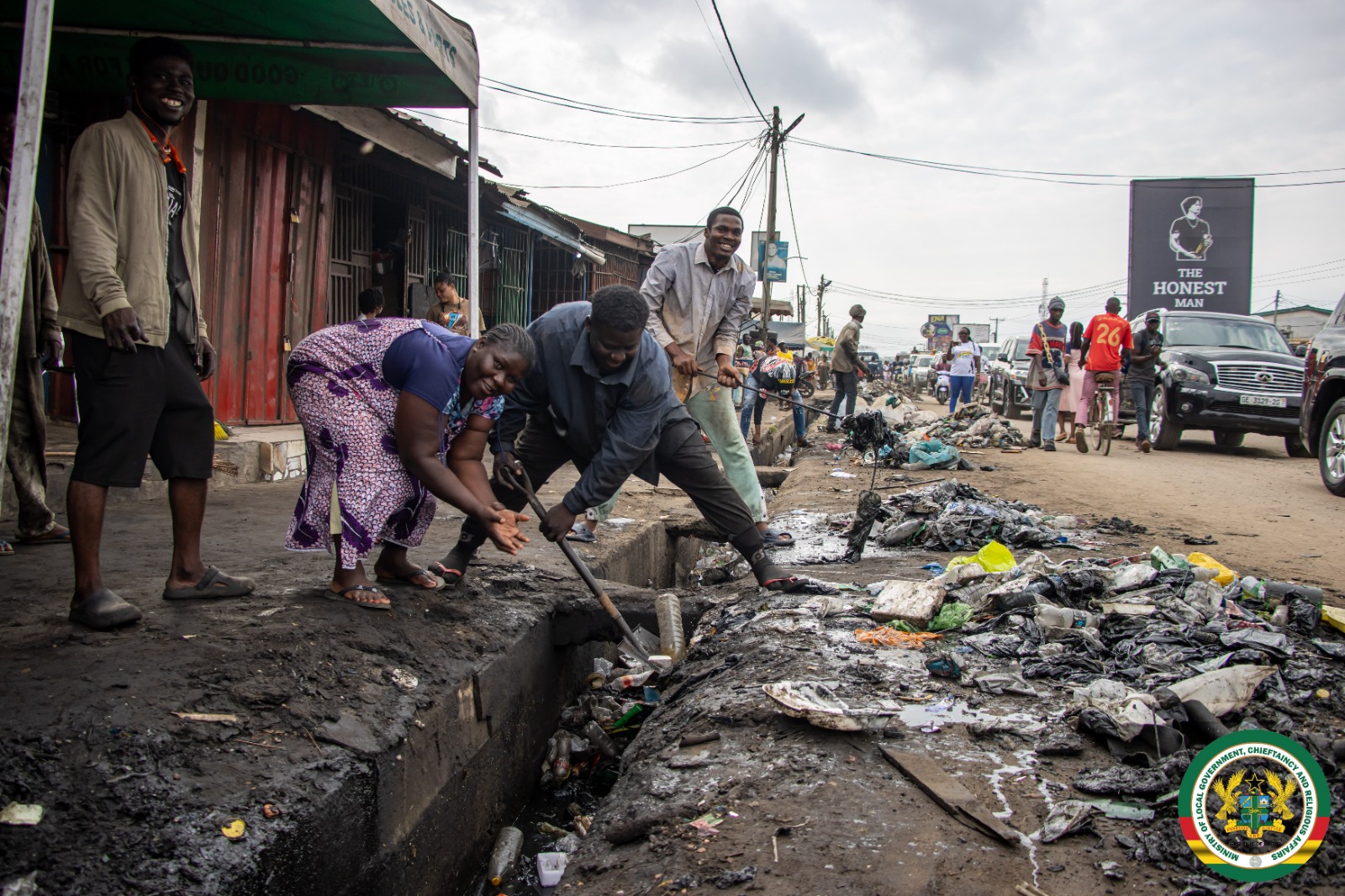
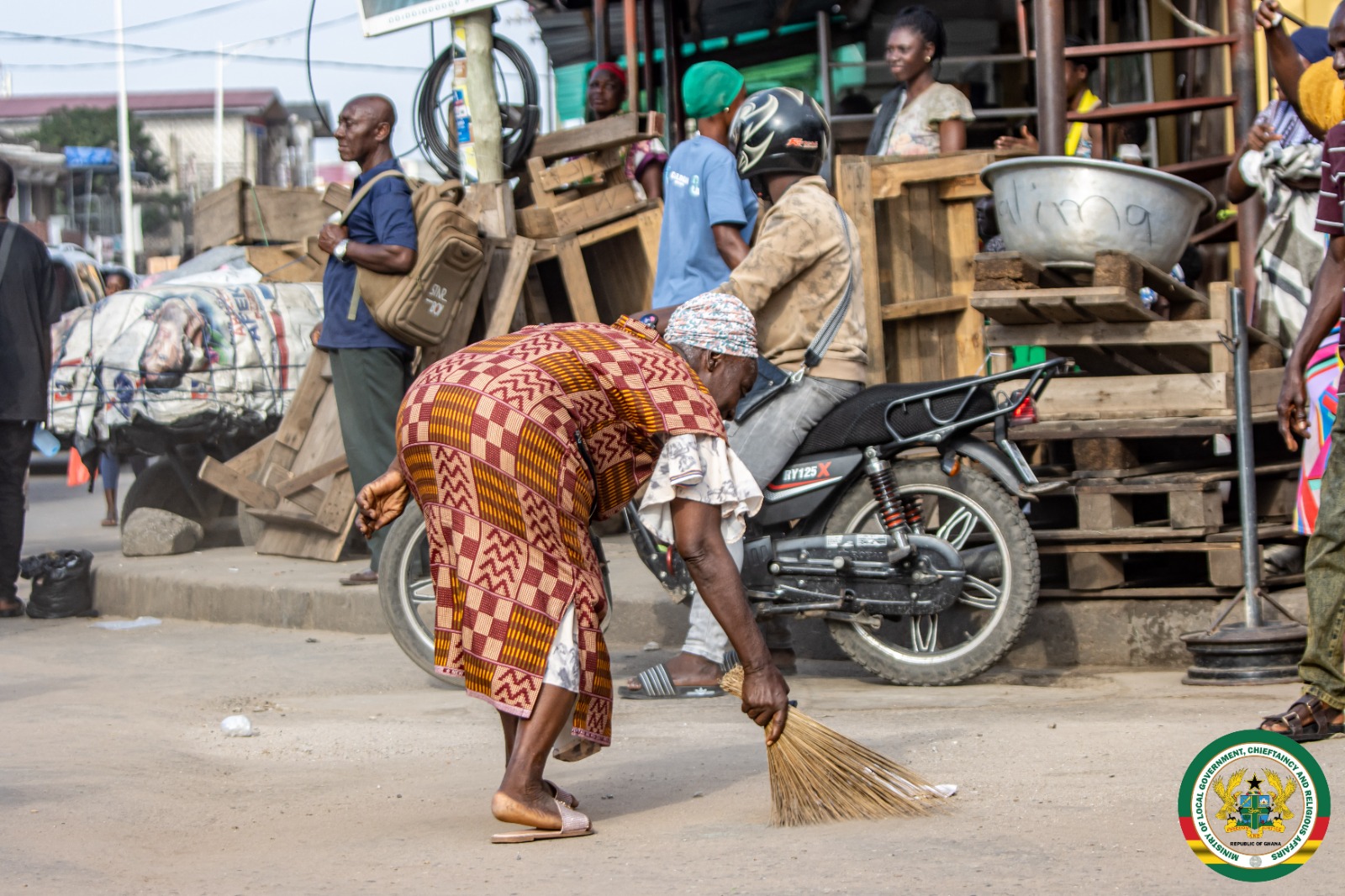
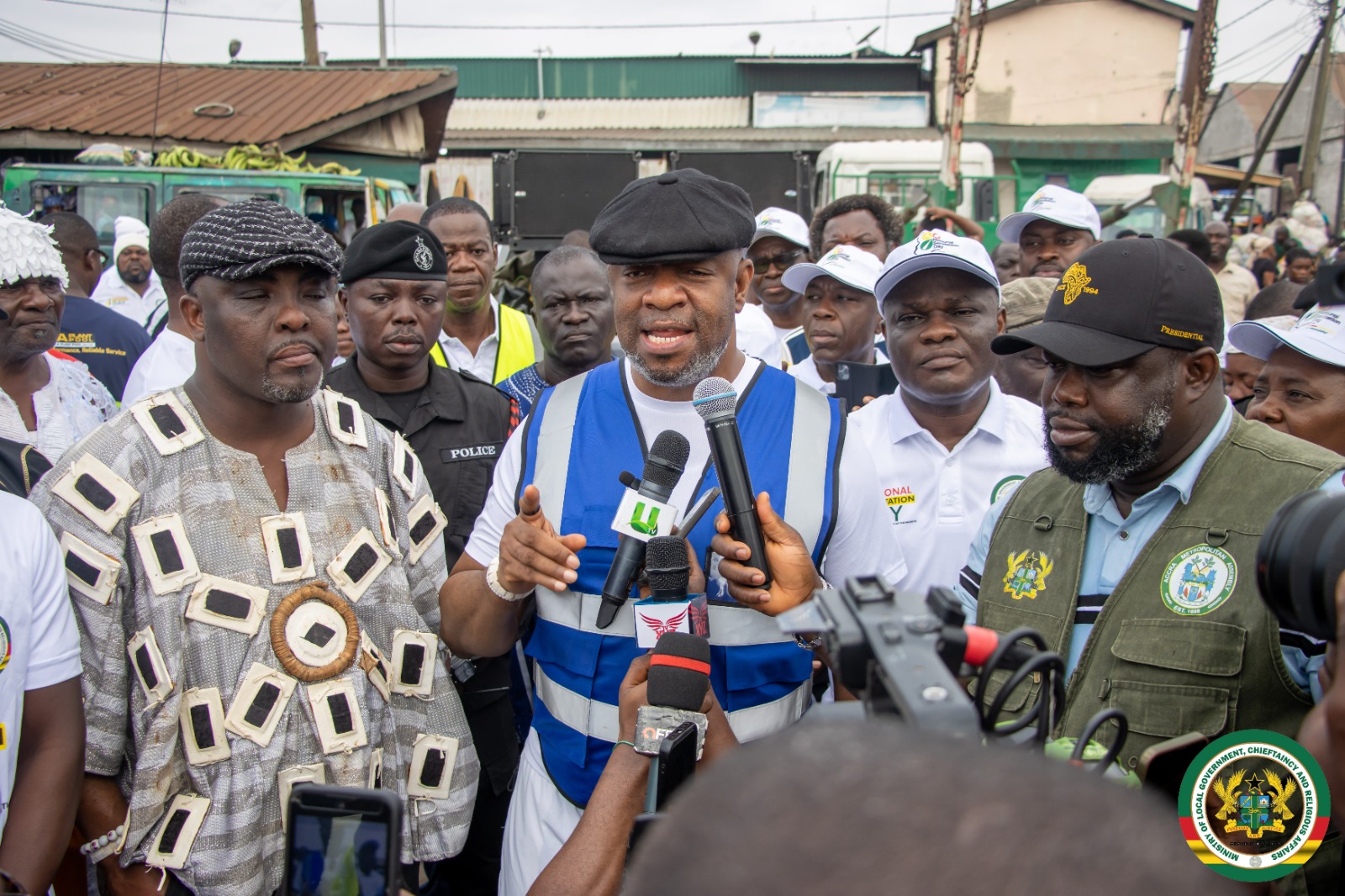
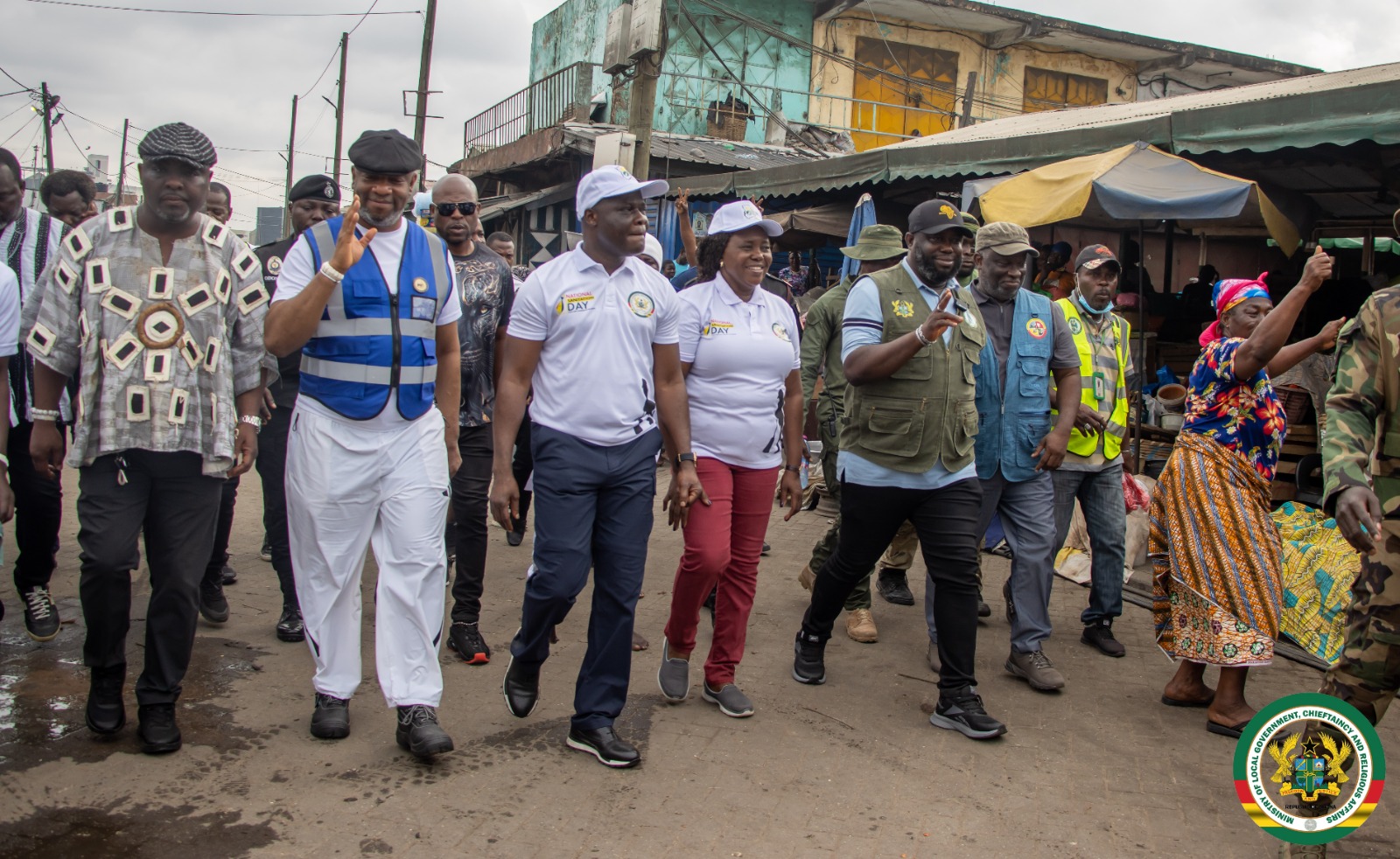
1.jpeg)
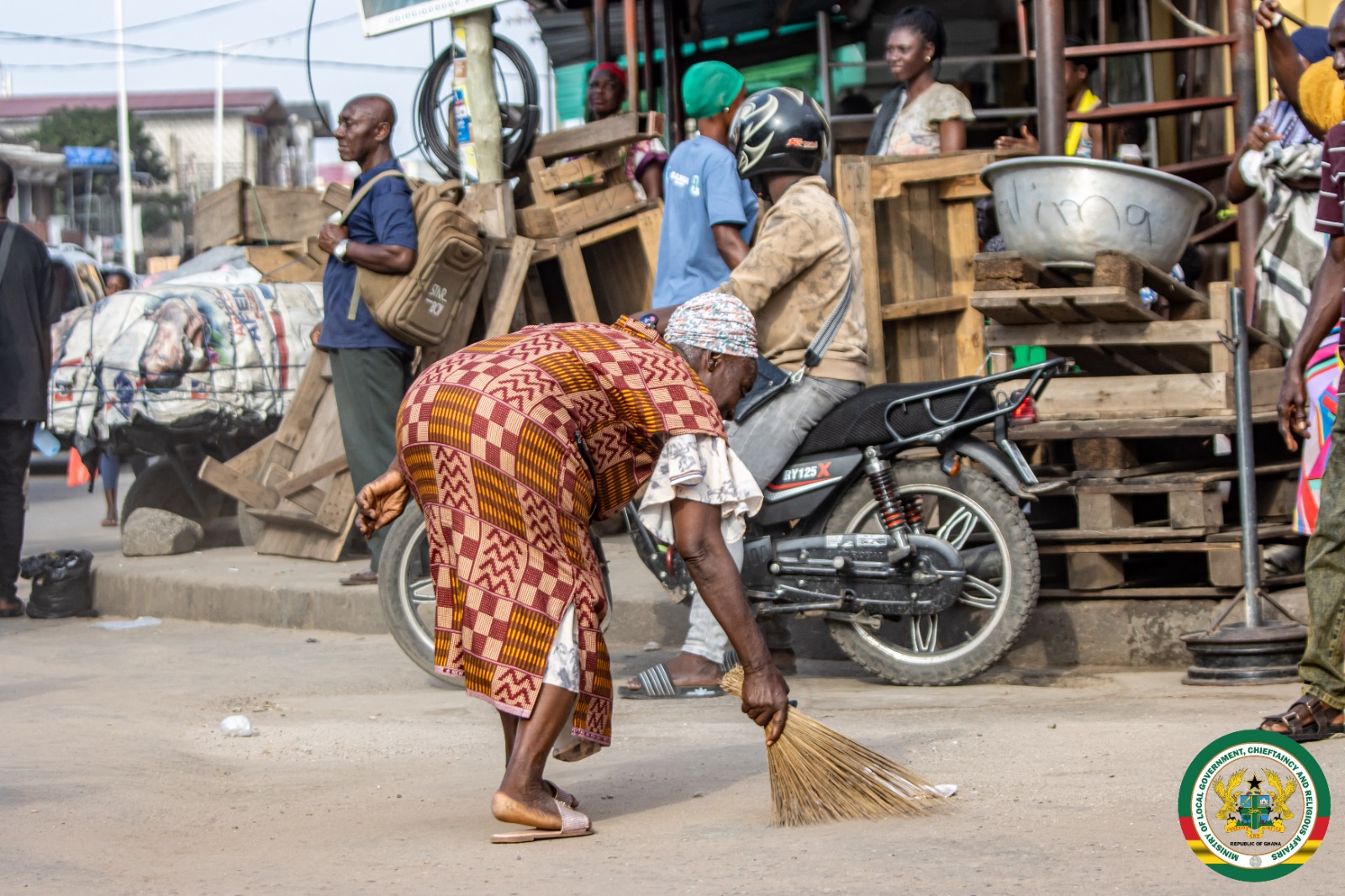
.jpeg)